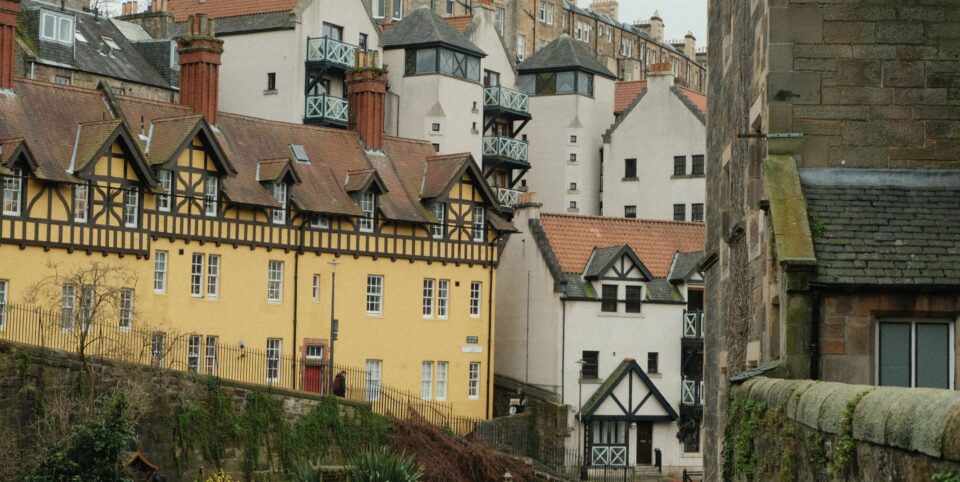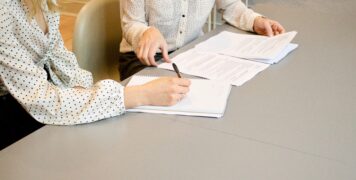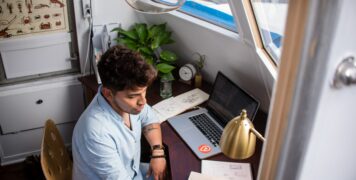Contact
020 4515 6728
info@ccameron.co.uk
Charles Cameron & Associates
Blackfriars Foundry
154-156 Blackfriars Road
London SE1 8EN
Can I get a mortgage with no deposit?
May 24, 2021
Information published was correct at the time of writing
--

A few years ago you would have been correct in thinking it is impossible to get a 100% mortgage. However, some lenders are beginning to find new ways to help first-time buyers.
If you’re hoping to get on the property ladder without years and years of saving for a deposit, here are some options for buying your home without a deposit, or with only a very small deposit.
Guarantor Mortgages
The main way to get a 100% mortgage with no deposit of your own is to get a guarantor mortgage.
This means that you’ll need a family member who owns their own home to act as your guarantor. They’ll be named on your mortgage and will be responsible for any repayments you fail to make.
The mortgage can be secured against the guarantor’s home, meaning that their property may be repossessed if you fall behind on your repayments, or against a cash lump sum which is held by your mortgage provider until you’ve made sufficient repayments.
Not all mortgage providers offer this type of mortgage, so you’ll probably have fewer options to choose from than a conventional mortgage.
Gifted Deposits
If you don’t personally have enough savings for a deposit, but you have a family member or loved one who is willing to give you the money, many mortgage providers will accept this.
Like other deposits, you’ll usually need at least 5% of the property value, but a larger amount will give you access to better mortgage deals.
The person giving you the money will need to sign a document confirming that the money is a gift and that you have no responsibility to repay them.
Sometimes, for newly built properties, the property developer will be willing to provide the gifted deposit to facilitate the sale. This will usually take the form of a 10% discount on the home, with this 10% becoming your deposit.
Shared Ownership
Under the Shared Ownership scheme, you can buy a share of certain properties (usually 25%, 50% or 75%) while the rest is owned by a local authority or a housing developer. You’ll pay rent to them on the portion that they own. Therefore, you’ll only need to save a deposit for the portion of the property that you are buying.
So, let’s say that you’re hoping to buy a £200,000 home. To get a mortgage alone, you might need a deposit of £20,000 (10%). But if you only buy a 25% share of the home (£50,000), a 10% deposit is just £5,000.
Help To Buy: Equity Loan
If you have enough savings for a 5% deposit on a home, but you want access to mortgage deals only usually available to buyers with bigger deposits, you could benefit from a Help to Buy: Equity Loan.
Through this government scheme, you could borrow 20% of the property value (in England or Wales), or 40% of the property value (in London only), as a loan that’s interest-free for the first five years.
This loan is only available for certain newly built properties, and with mortgages from participating providers.
Things to consider
While it is possible to buy a home without a deposit, or with a very small deposit, there are a few things you should think about first:
• Owning a home isn’t the best choice for everybody – especially if you have very little savings. Think seriously about whether you can afford the repayments and the risks involved if you miss them.
• If you get a mortgage for 95-100% of the value of your home, and house prices fall, the property will be worth less than the amount you owe to your mortgage provider. This will make it very difficult for you to sell the home if you want to move.
• Mortgages are usually more expensive with smaller deposits, and you might pay higher fees and higher interest rates. Postponing buying a property until you have a larger deposit can save you money over the long term.



